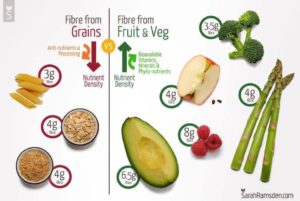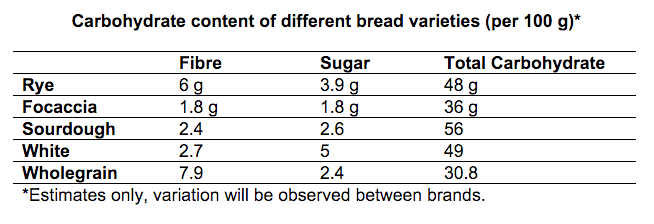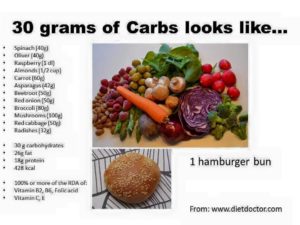Blog
Bread
To many people, the best thing since sliced bread is, well…bread. Whether it’s a vehicle for your marmite/vegemite or a mopping up device for your gravy, bread has integrated its way into our diets and society. But is bread good for us? What about all the carbs? How does this relate to sugar?
Firstly, lets talk about the different types of bread; whole-wheat, rye, sourdough, white, focaccia…the list goes on. Why are some breads better than others? This largely comes down to the carbohydrates that they contain and in what ratios these are present. The main players are the complex carbohydrates; fibre and starch, and the simple carbohydrate; sugar. Now, sugar and starch are the ones we need to be a little weary of. When we eat bread, our bodies break down these molecules to release glucose (which provides energy for our cells and organs). This is all good and well, but if we consume more bread than is required for energy (particularly refined white varieties), any extra glucose can go on to be stored as fat. Fibre however is one of the good guys. This is because our bodies do not absorb fibre, rather it keeps things moving and is good for our overall digestive health. In general, breads with a higher fibre content (such as whole grain varieties) have a lower glycemic index, meaning that the glucose molecules from the starch and sugar are released more slowly into our blood streams1, keeping us satisfied for longer. But remember, you can get lots of fibre from fruits and vegetables too:
Some data suggests that a high dietary glycemic load (i.e. from refined carbohydrates such as white bread) may increase the risk of coronary heart disease2 but more work is required to fully understand their impact on health and disease outcomes. Especially in relation to gut health and the world of the microbiome.
All in all, it’s important to understand how the different carbohydrates in bread relate to our energy, nutrient or disease needs. For example, people who are active (including children) may be okay with the fibre and glucose energy in whole-grain bread. However if someone who is inactive, looking to lose weight or has poor metabolic health consumes an excess of bread (especially those containing fewer nutrients, little fibre and more sugar), this may have a negative impact on their health.
Remember that for those, like myself, that are eating a lower carbohydrate diet, a slice of bread can take up a fair whack of the daily fix without a huge amount of nutrients. I prefer to get my carbohydrates from more complex carbohydrates like in the terrific picture below done by our good friend Andreas, the diet doctor. There are many more nutrients and goodies in those fruits and vegetables than from a simple bun so I personally go for that option . Some people are also very sensitive to grain (like myself) so again should aim for the more complex carbohydrates shown in this picture:
The key point is that we are all different when it comes to bread. This depends on a range of factors like metabolic health, level of activity, gut health, genetics, gluten intolerances and other factors. The best bet is to see how you feel when you eat bread. If you love a piece of sourdough and are healthy and happy then keep doing what you are doing but if you aren’t feeling your best and are looking to improve health or vitality then perhaps you can start lowering your bread intake and try getting your carbohydrates from more complex sources. Good Luck and remember that you know your body better than anyone else so really tune in and see how you feel.
For those wanting to learn more about lower carb eating, here are some results from 2 meta analysis studies which show the significant benefits to low carb for those wanting to lose weight or improve health markers (there is also an eating pyramid included).
Bread fact: A recent study showed that over 60% of breads in the UK contained pesticide residue so make sure if you are eating bread, you know where it is coming from.
References
- Jenkins, D. J. et al. Starchy foods and fiber: reduced rate of digestion and improved carbohydrate metabolism. Scand. J. Gastroenterol. Suppl. 129, 132–141 (1987).
- Liu, S. M. et al. A prospective study of dietary glycemic load, carbohydrate intake, and risk of coronary heart disease in US women. Am. J. Clin. Nutr. 71, 1455–1461 (2000).















